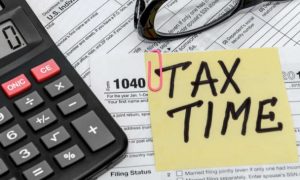If you’re using a company vehicle for personal reasons, it’s important to understand the tax implications. The IRS has specific rules and regulations regarding this topic that can affect your taxes. In this article, we’ll discuss what you need to know about the personal use of a company vehicle for tax purposes. Let’s dive in!
Also Read– 5 businesses you can start from home with little or no money
What is the personal use of a company car?
Personal use of a company car refers to using an employer-provided vehicle for non-business purposes such as commuting to and from work, running errands, or taking personal trips. This can include both owned and leased vehicles and is subject to tax implications that employees should be aware of.
Company Car Tax Rules
The IRS has specific rules about the taxation of personal use of company cars. Generally, any personal use of a company car is considered taxable income, except for commuting to and from work.
Read More:- Here’s what Biden’s 1% buyback tax has done to stock prices so far in 2023
However, there are certain exemptions, such as using the vehicle for business purposes or in case of an emergency. The value of this personal use is calculated based on the fair market value of the vehicle and can be reported by either the employer or employee. It’s important to keep accurate records and understand these rules to avoid any tax liabilities.

Personal Use of Company Vehicle Valuation Options
When it comes to determining the value of personal use of a company vehicle, there are several options available.
Read More:- How a HELOC can advance your business
Each method has its own set of rules and requirements for calculating the value of personal use. Let’s take a closer look at each one.
General Valuation Rule
Under this rule, the value of personal use is determined by taking the fair market value of the car and multiplying it by the percentage of personal use. This amount is then reported as taxable income by the employee.
Read More:- Tesla, Meta, WWE, McDonald’s, Ford: Why These 5 Stocks Are Drawing Investors’ Attention Today
Cents-per-mile Rule
The Cents-per-mile Rule is a method of valuing the personal use of a company or personal vehicle based on the number of miles driven for non-business purposes. The IRS sets a standard mileage rate each year that can be used to calculate the value of personal use under this rule. For 2023, the Internal Revenue Services’ standard mileage rate is 65.5 cents per mile.
Commuting Rule
The Commuting Rule applies to the valuation of personal use of company vehicles for tax purposes. Commuting miles are considered personal use and are not deductible or excludable from an employee’s income. Exceptions exist, such as when an employee’s home is also their primary place of business.
Also Read:- Social Security: Direct SSI Payment Worth Over $900 To Arrive in 3 Days
Lease Value Rule
This rule applies only to leased vehicles and uses a formula that takes into account factors such as annual lease value, lease payments, depreciation, and other costs associated with leasing a car. Learn how to lease a car through your business for more details about these expenses.
Why You Should Establish a Personal Use of Company Vehicle Policy
Establishing a personal use of company vehicle policy can provide your company with significant benefits. By creating this policy, you can take advantage of taxation and valuation benefits that can save you money in the long run. Here are five reasons why you should consider implementing a personal use of company vehicle policy:
Read More:- 7 Things to Know Before Starting Your Side Hustle
Tax Savings: By establishing a company car policy, you may be able to deduct expenses related to the vehicle on your tax returns. The best tax software for self employed individuals and businesses may walk you through these deductions.
Reduced Liability: A clear personal use policy can protect your business from liability if an employee gets into an accident while driving a company car.
Improved Employee Morale: Providing access to company cars for personal use can boost employee morale and job satisfaction.
Simplified Valuation: A personal use policy makes it easier to determine the value of your company’s vehicles for financial reporting purposes.
Increased Control: Having a clear personal use policy allows you to control how employees use company vehicles, which helps prevent abuse or misuse.
Read More:- How To Start Your Own Business While You’re Still Employed
What to Include in a Company Car Policy
An effective company car policy is essential for managing the use of company vehicles and protecting your business from liability. Here are some key elements that should be included in a comprehensive company car policy:
Vehicle Use Guidelines: Clearly outline when and how an employee’s personal use of company cars is acceptable.
Driver Requirements: Establish minimum requirements for drivers, such as age and license status.
Insurance Coverage: Specify the type and amount of business auto insurance coverage required for all company vehicles.
Maintenance Procedures: Detail maintenance responsibilities, including regular inspections, repairs, and record keeping. You may even detail what to keep in company vehicles during winter.
Accident Reporting Protocol: Provide a clear procedure for reporting accidents involving company cars.
Penalties for Violations: Clearly state the consequences of violating the policy, including disciplinary action or loss of driving privileges.
Read More:- Rihanna’s Dad Says She and A$AP Rocky Have Already Gone Through a “Few Names” for Their Son
How to Withhold and Report Taxes on Personal use of Company Vehicles
To ensure compliance, it is important to understand the process of withholding taxes from employee paychecks and reporting them accurately to the IRS.
Withholding Taxes
Taxes on personal use of company vehicles should be withheld from an employee’s paycheck in accordance with IRS guidelines. This includes calculating the fair market value of the vehicle, determining the percentage of personal use, and subtracting any reimbursements or payments made by the employee.
Also Read– Startup CEO charged in $175 million fraud case
Reporting Taxes
Employers must report taxes on the personal use of company vehicles accurately to avoid penalties. This involves filing Form 941 quarterly and Form W-2 at year-end, which includes information such as total compensation, taxable wages, and federal income tax withheld.
Read More:- Trump’s indictment in New York: Here’s what to know
How does personal use of a company vehicle appear on a W-2?
Personal use of a company vehicle appears on an employee’s W-2 form as taxable income. Employers must report the fair market value of the personal usage, either using the general valuation method or the vehicle cents-per-mile rule and include it in the appropriate box of the W-2.
Also Read- Baltimore shooting leaves 3 people dead, 1 in critical condition
Is personal use of a company car subject to FICA?
Yes, personal use of a company car is subject to FICA (Federal Insurance Contributions Act) taxes. The value of the personal usage is added to an employee’s wages and is subject to Social Security tax and Medicare tax, which are both part of FICA taxes.
Read More:- Donald Trump’s indictment: Our reporters dig into the repercussions for 2024
What is the fair market value of a company car?
The fair market value of a company car is the price it would sell for on the open market. It’s determined by factors such as the make, model, age, condition, and mileage of the vehicle. For example, the best work trucks for your small business are likely to have a higher fair market value than a basic company lease. Employers must use this value to calculate an employee’s taxable income from the personal use of a company car.
Read More:- Social Security 2023: Here’s When Your April Check Will Arrive
What happens if you use a business vehicle for personal use?
Using a business vehicle for personal use results in the fair market value of the personal usage being added to an employee’s wages. This value is subject to Social Security tax, Medicare tax, and federal income tax withholding. Employers must report this value on the employee’s W-2 form at year-end.





























